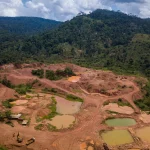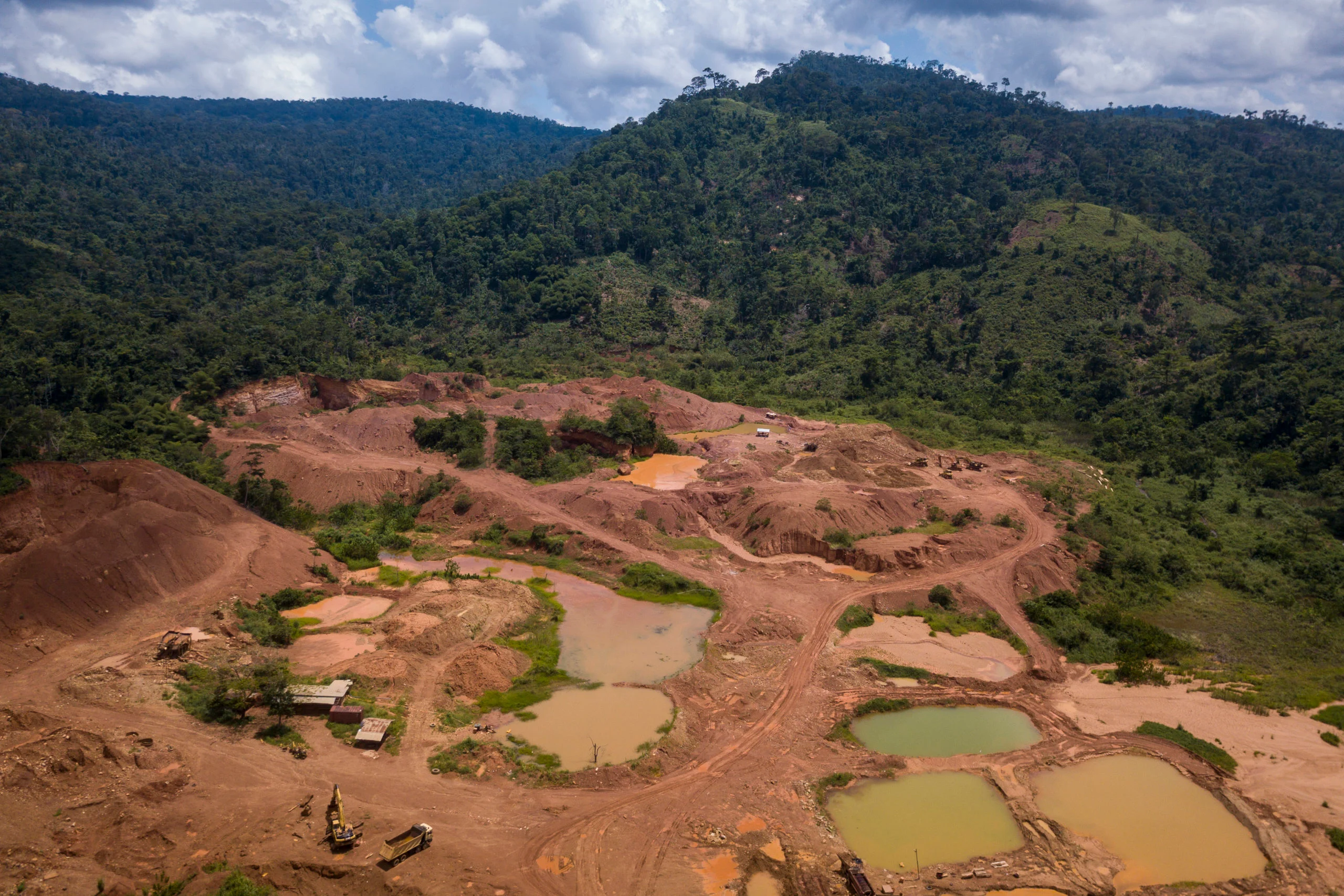The environmental damage caused by illegal mining in Ghana is undeniable, yet forward-looking initiatives are showing a way toward restoration.
Illegal gold mining — locally known as galamsey — has for years wreaked havoc in southern Ghana, particularly in resource-rich regions such as the Upper Offin sub-basin. Once renowned for their dense forests and thriving cocoa plantations, these areas now face severe land degradation, declining agricultural yields, and heavily polluted water bodies. Despite this grim reality, there is hope. The International Water Management Institute (IWMI) is leading efforts to rehabilitate these landscapes while shaping policies that can make lasting change at both local and national levels.
When Mining and Agriculture Collide
Southern Ghana’s rich environment has long been its lifeline, with forests covering 66% of the region and cocoa farms occupying nearly half of that forested land. However, since 2015, illegal mining activities have expanded rapidly, destroying fertile land and threatening the livelihoods of countless cocoa farmers.
The scale of destruction is alarming. In 2024, the Centre for Remote Sensing and Geographic Information Services, through the SERVIR West Africa program, reported that more than 670 square kilometres of land — an area roughly the size of Singapore — had been lost to illegal mining.
The consequences have been severe:
- Land degradation: Research by IWMI and the Swedish University of Agricultural Sciences (SLU) revealed a sharp decline in soil organic matter in mined areas, making land restoration far more challenging.
- Water pollution: Mercury levels in groundwater near mining sites were found to be dangerously high, posing serious health risks and damaging aquatic ecosystems.
The shift from agroforestry to mining has intensified pressure on both land and water resources, endangering environmental health, food security, and economic stability across the region.
IWMI’s Innovative Approach to Rehabilitation and Policy Reform
In the face of these challenges, IWMI has taken decisive action. Through the CGIAR Initiative on West and Central African Food Systems Transformation, the institute facilitated the co-design of an inclusive landscape management plan for the Ahafo Ano South West District — a hotspot for illegal mining within the Upper Offin sub-basin of the Pra basin.
Key features of IWMI’s approach include:
- Collaborative design: The plan was developed in close partnership with the district assembly, local farmers, and other stakeholders, ensuring it was both practical and widely supported.
- Policy integration: The district assembly formally adopted the plan as part of its Medium-Term Development Plan, giving it an official role in local governance.
- Sustainable reclamation models: In the mining-affected community of Kunsu, IWMI piloted the Oil Palm for Post-Mined Site Reclamation model. Guided by a jointly developed business framework and a benefit-sharing mechanism, this initiative promotes sustainable land use while creating economic opportunities for local residents.
From Local Action to National Impact
The significance of IWMI’s work extends well beyond the Ahafo Ano South West District. By embedding inclusive landscape management into official district policy, the institute has created a replicable model for other mining-affected areas.
Lessons and opportunities for policymakers include:
- Scaling sustainable practices: The management plan offers a blueprint that can be adapted to address similar challenges across Ghana’s mining regions.
- Economic integration: The oil palm reclamation model demonstrates the financial viability of restoring mined land, supporting its inclusion in broader agricultural and environmental policies.
- Community-led governance: Strengthening local farmer-based organizations ensures community ownership and long-term sustainability of restoration efforts.
A Call to Action
While the environmental damage from illegal mining remains a pressing challenge, IWMI’s initiatives prove that recovery is possible. Now, policymakers, researchers, and communities must work together to scale these successes into nationwide strategies.
By applying IWMI’s insights, Ghana can create a sustainable future where mining, agriculture, and conservation coexist in balance. The task ahead is urgent — but with collective action, degraded landscapes can be restored, livelihoods can be secured, and the nation’s natural wealth can be protected for generations to come.




